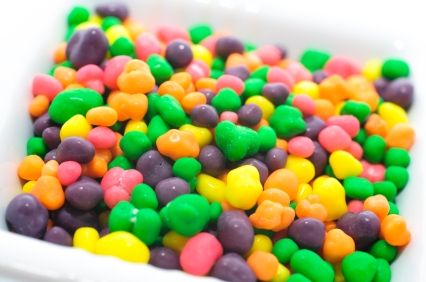Tired of feeling sluggish and unhealthy? As we get older, it’s important to make healthy choices to maintain our well-being. But with so many fad diets and confusing information out there, it can be hard to know where to start.
In this article, we’ll share three simple and easy ways to avoid junk food that are backed by science. These strategies are perfect for seniors and middle-aged adults looking to improve their health without breaking the bank.
Simple ways to stop eating junk food
- Eat full and balanced meals – If you eat whole and healthy meals, you will have less of an urge to snack on junk foods. The average meal should contain items from each of the four main food groups – Fruits and Vegetables, Grains, Meats and alternatives, and dairy products. Any meal that satisfies these groups will help you gain the nutrients and vitamins you need to prevent sudden hunger pains. Foods rich in fiber, complex carbohydrates, and lean proteins digest slowly, providing a steady release of energy throughout the day. This helps prevent blood sugar spikes and crashes, which can lead to cravings. Eating a balanced diet can help regulate hormones like leptin and ghrelin, which play a role in appetite control. Leptin signals fullness, while ghrelin signals hunger. A balanced diet can help maintain a healthy balance of these hormones. When you consume a variety of nutrients from different food groups, your body is better able to meet its nutritional needs. This can help prevent cravings for unhealthy foods that are often high in sugar, fat, and salt. A healthy gut microbiome is essential for regulating appetite and digestion. A diet rich in fiber and probiotics can support a healthy gut, helping to reduce cravings and promote satiety. Key nutrients that contribute to satiety:
- Fiber: Found in fruits, vegetables, whole grains, and legumes, fiber slows down digestion and promotes feelings of fullness.
- Protein: Lean proteins like chicken, fish, beans, and tofu can help stabilize blood sugar levels and reduce cravings.
- Healthy fats: Unsaturated fats found in nuts, seeds, and avocados can provide sustained energy and help regulate hunger hormones.
- Set your limits – It’s no fun cutting junk food out of your diet completely… so set your limits. Try to consume only one or two small junk food items a day. To avoid junk food, identify your triggers, plan ahead, practice mindful eating, set realistic goals, find healthy alternatives, and reward yourself. By following these steps, you can reduce your junk food consumption and improve your overall health.
- Make a stash – Make a stash or a section in your fridge filled with already prepared snacks like carrots and dip, trail mix, fruit salads, yogurt parfaits, or snack wraps. Whenever you have the urge to snack, grab something from your healthy snack stash. Making a stash of healthy snacks can be a powerful strategy to combat junk food cravings. Here’s why:
- Accessibility: Having healthy snacks readily available in your fridge or pantry makes it more likely you’ll choose them over less healthy options. This is because humans are creatures of habit, and we tend to reach for what’s easiest and most convenient.
- Pre-portioned snacks: Preparing snacks in advance can help you avoid overeating. When snacks are pre-portioned, you’re less likely to mindlessly consume more than you intended.
- Variety: A diverse range of healthy snacks can help prevent boredom and cravings. By offering your taste buds different flavors and textures, you’re less likely to seek out unhealthy alternatives.
- Nutrient-dense options: Filling your stash with nutrient-dense snacks like carrots and dip, trail mix, fruit salads, yogurt parfaits, or snack wraps ensures you’re getting essential vitamins, minerals, and fiber. These nutrients can help regulate hunger and satiety, reducing the likelihood of cravings. By stocking your fridge with a variety of healthy snacks, you’re making a conscious effort to support your health goals and resist the temptation of unhealthy junk food.
- Record your habits – Writing down any fast foods or junk foods that you eat may help you reduce your intake. Sometimes having your bad habits put right before your eyes can stop them in their tracks. But don’t beat yourself up if you had a junk food day – nobody’s perfect!
- Pop a mint – If you have a strong craving for junk food, grab a mint or brush your teeth. The taste of mint in your mouth will prevent you from wanting to eat. While popping a mint might not be a miracle cure for hunger, there are a few mechanisms at play that can contribute to a temporary reduction in appetite:
- Oral Stimulation: The act of chewing and tasting a mint can stimulate the mouth and activate nerves that signal the brain. This can temporarily distract the brain from hunger cues.
- Flavor Distraction: The strong flavor of a mint can temporarily override other tastes and sensations, potentially reducing the desire for food.
- Psychological Association: If you associate mints with a sense of fullness or satisfaction, the act of chewing one can create a psychological association that reduces hunger cravings. However, it’s important to note:
- Temporary effect: The effects of mints on hunger are generally short-lived. They should not be relied upon as a primary means of appetite suppression.
- Not a substitute for healthy eating: Mints can be a helpful tool, but they should not replace healthy eating habits and balanced meals. If you’re struggling with hunger or weight management, it’s best to consult with a healthcare professional or registered dietitian for personalized advice and guidance.
- Don’t buy junk food in the first place – Avoid junk food isles at the grocery store by spending the majority of your shopping time in the produce section. Pick up vegetables and fruits that appeal to you instead of chocolate and cookies. Check the label before buying anything that may contain a lot of fat or calories.
- Keep yourself busy – When we are bored, we tend to snack, even if we aren’t hungry. The solution is to make sure that we do not treat eating as a pastime but as an act of fulfilling our body’s real needs.
- Treat yourself – It’s okay to treat yourself to a sweet snack every now and then, nobody expects you to be 100% junk free!
Benefits of Cutting Back on Junk Food
Junk food might be tasty, but it’s not good for you. Eating too much junk food can make you gain weight, feel tired, and get sick. It can also hurt your teeth and make your skin look bad. But don’t worry! You can still enjoy a treat every once in a while. The key is to eat junk food in moderation and choose healthier options when you can.
By cutting back on junk food, you’ll feel better and have more energy. You’ll also be less likely to get sick and have healthier skin and teeth. Plus, you might even lose weight! So, next time you’re tempted to grab a bag of chips or a candy bar, think about how it will make you feel in the long run.
Inspiring Stories of Overcoming Junk Food Addiction
- The Disgusting Truth of Junk Food by Ben Farr
- Why we can’t stop eating unhealthy foods by TEDMED
- Unprocessed — how I gave up processed foods (and why it matters) | Megan Kimble | TEDxTucsonSalon by TEDx Talks
- I Quit Sugar For An Entire Year – How My Life Changed by Ali M
- What Happens to Your Body When You Only Eat Junk Food Every Day by The Infographics Show
Also Read
Best Study Tips for Your Children
Obesity Rates Rise Even Higher
Stopping Negative Health Effects







